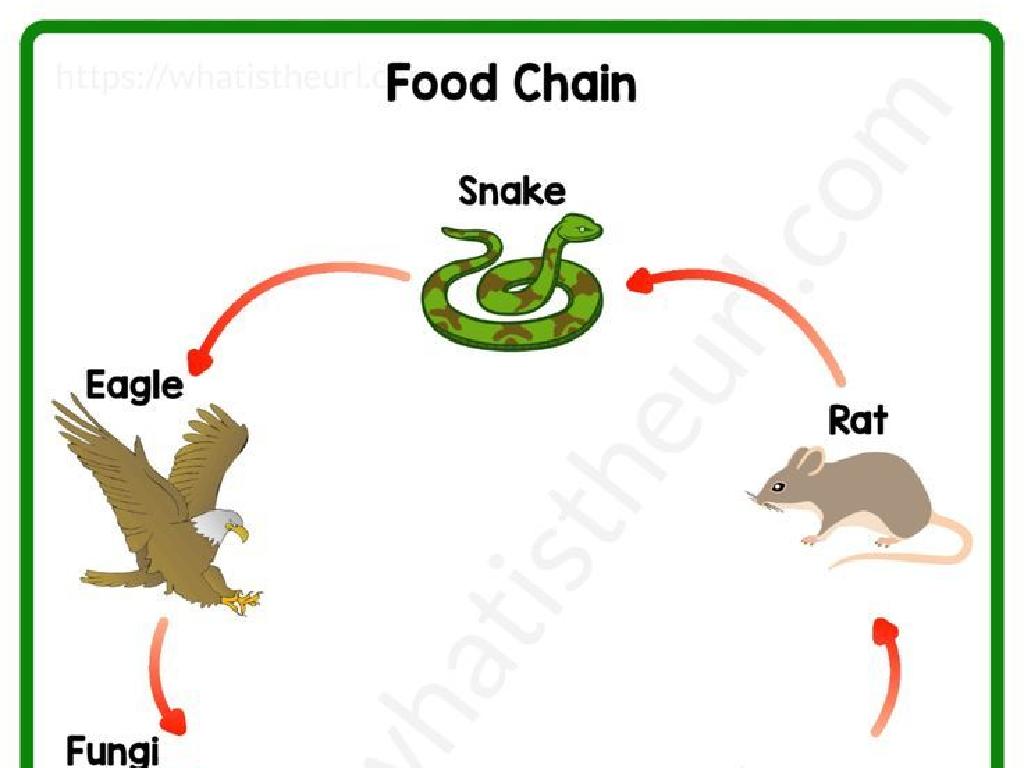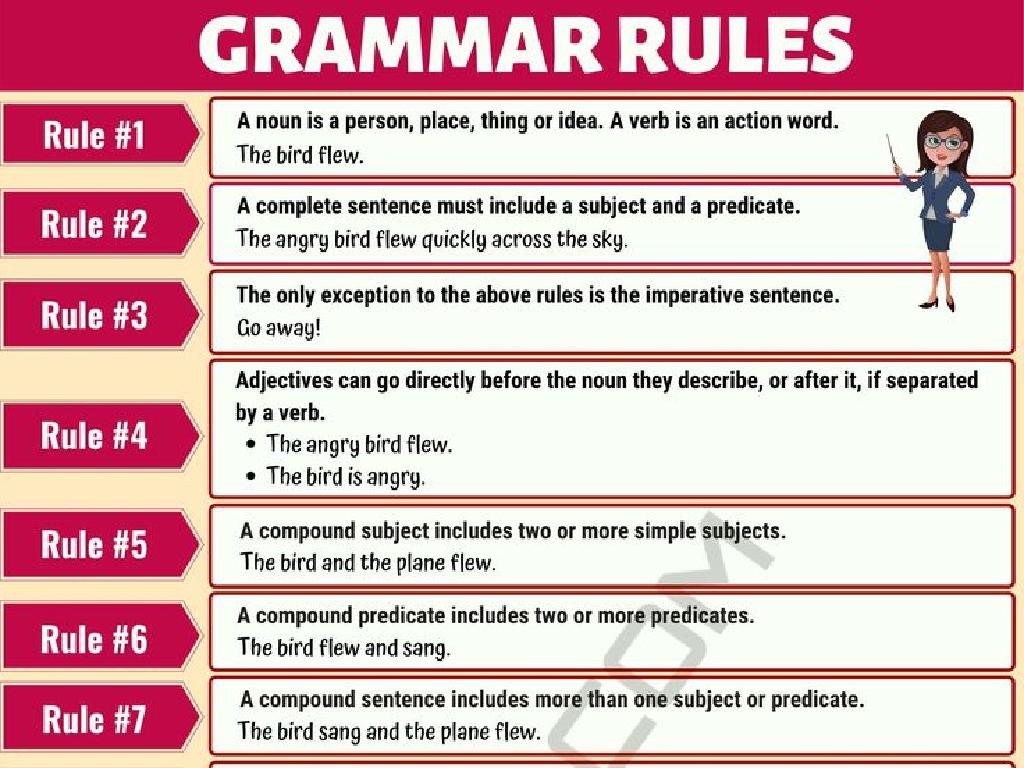The Teachings Of Confucius
Subject: Social studies
Grade: Sixth grade
Topic: Early China
Please LOG IN to download the presentation. Access is available to registered users only.
View More Content
Exploring Early China: The Teachings of Confucius
– Glimpse into Early China
– A civilization that laid foundations for modern China
– Significance of Confucius
– Confucius, a philosopher whose ideas shaped Chinese culture
– Key teachings of Confucius
– Respect for elders, importance of education, and moral values
– Applying Confucian wisdom today
– How can we use Confucian principles to improve our lives?
|
This slide introduces students to the ancient civilization of Early China and sets the stage for understanding the profound impact of Confucius on Chinese culture and beyond. Confucius was not just a historical figure but a visionary whose teachings on morality, social relationships, and justice are still relevant. Today’s lesson will cover the core principles of Confucianism and encourage students to think about how these age-old concepts can be applied to their daily lives, promoting a sense of respect and community. Engage the class with questions about their own experiences with respect and learning, drawing parallels to Confucian ideals.
Who Was Confucius?
– Confucius: China’s renowned philosopher
– A teacher, philosopher, and political theorist from ancient China.
– His early life and background
– Born in 551 BCE in the state of Lu, now known as Shandong Province.
– His enduring legacy
– Confucius’ ideas form the foundation of Chinese culture and social morals.
– Why his teachings are relevant today
– His concepts of respect, education, and government impact our world.
|
Confucius is one of the most influential figures in Chinese history, whose teachings have shaped Eastern philosophy and cultural practices for centuries. His early life, marked by modest beginnings, led to significant contributions in ethics, education, and politics. Confucius emphasized the importance of personal and governmental morality, correctness of social relationships, justice, and sincerity. These principles, encapsulated in texts such as the Analects, continue to resonate in modern society, underpinning many aspects of Chinese tradition and thought. In this lesson, students will explore Confucius’s background, his key teachings, and their lasting impact on society. Encourage students to consider how ancient philosophies can still apply to contemporary life and to think critically about the values that guide their own communities.
The Teachings of Confucius
– Key principles of Confucianism
– Confucianism teaches moral virtues and ethics.
– Understanding ‘Ren’ or Benevolence
– ‘Ren’ is the Confucian virtue denoting compassion.
– Exploring ‘Li’ or Proper Behavior
– ‘Li’ refers to etiquette and ceremonial rites.
– Confucius’s impact on society
|
This slide introduces students to the ancient Chinese philosophy of Confucianism, emphasizing its key principles and virtues. Confucianism is not just a system of thought but also a guide for moral and ethical behavior. ‘Ren’ is a central idea representing humaneness, kindness, and compassion towards others. ‘Li’ encompasses a range of behaviors from etiquette to rituals, promoting social harmony. Understanding these concepts helps students appreciate how Confucius’s teachings aimed to create a just and orderly society. Encourage students to think of ways these principles can be applied in their own lives and discuss the lasting influence of Confucianism on Chinese culture and beyond.
Confucianism in Society
– Confucianism’s impact on society
– Confucianism guided social order and political theories in China.
– Government job examination system
– Exams based on Confucian texts determined qualification for civil service.
– Confucianism shaping family values
– Emphasized respect for elders and family hierarchy.
– Confucian ideals in daily life
|
This slide explores the profound influence of Confucianism on Chinese society and government. Confucianism, a philosophy founded by Confucius, became the foundation of Chinese ethical and social conduct. It emphasized moral development and respect for social hierarchy, which shaped the government’s structure and policies. The civil service examination system, which required knowledge of Confucian texts, was a key method for selecting government officials, ensuring that those in power were educated in these principles. Confucianism also reinforced family values, promoting filial piety, or respect for one’s parents and ancestors, as a paramount virtue. Discuss how these values are reflected in students’ lives today and how respect and education remain important in our society.
Confucius’s Impact on Education
– Confucius: The Teacher
– Confucius believed in teaching all, regardless of social status.
– Education in Confucianism
– Education was key to personal improvement and societal harmony.
– Confucianism and China’s Schools
– China’s civil service exams were based on Confucian texts.
– Lasting Educational Influence
– Confucian ideals still influence education globally.
|
Confucius revolutionized education by advocating for the education of all individuals, not just the elite. He emphasized moral development and critical thinking over rote memorization. Confucianism placed a high value on education as a means for self-improvement and for achieving a harmonious society. This philosophy greatly influenced China’s education system, particularly through the implementation of civil service examinations that tested knowledge of Confucian texts. These exams were a path for many to advance socially and professionally. Confucius’s teachings on education have left a lasting legacy, influencing educational philosophies and systems around the world. Encourage students to think about how education can help them grow and contribute to society, reflecting on Confucius’s belief in the power of learning.
Confucianism Today: Enduring Influence
– Confucianism’s modern legacy
– Confucian ideas still shape societies, values, and governments.
– Confucianism across East Asia
– Influences Japan, Korea, Vietnam, and others with focus on harmony and respect.
– Current debates on Confucianism
– Discussions on its role in modern governance, education, and ethics.
– Confucianism’s relevance today
|
This slide explores the impact of Confucianism in the contemporary world. Confucianism, a philosophy that originated in ancient China, continues to influence modern societies, particularly in East Asia. It emphasizes moral integrity, respect for hierarchy, and the importance of education. In countries like Japan, Korea, and Vietnam, Confucian principles are woven into the fabric of society, affecting social behavior and government policies. Contemporary debates often focus on the relevance of Confucianism in modern governance, its impact on educational practices, and its ethical implications in a globalized world. Encourage students to consider how ancient philosophies can remain significant over time and to discuss the potential benefits and challenges of applying Confucian principles today.
Class Activity: Confucius Says
– Play ‘Confucius Says’, a game like ‘Simon Says’
– Students take turns as ‘Confucius’
– Share wise sayings or instructions
– Reflect on teachings for today’s life
– How can ancient wisdom be used in modern times?
|
This activity is designed to engage students with the teachings of Confucius in an interactive and fun way. ‘Confucius Says’ is a play on the traditional game ‘Simon Says’, where one student plays the role of ‘Confucius’ and gives instructions starting with ‘Confucius says’. The other students follow the instructions only if they start with ‘Confucius says’. This can include wise sayings or moral instructions inspired by Confucian teachings. After the game, lead a discussion on how these ancient teachings can be applied to the students’ lives today, promoting values such as respect, kindness, and honesty. Possible activities: 1) ‘Confucius says’ to help someone in need. 2) ‘Confucius says’ to share something with a friend. 3) ‘Confucius says’ to say thank you to someone. 4) ‘Confucius says’ to write a kind note to a classmate. 5) ‘Confucius says’ to reflect on what makes a good friend.






